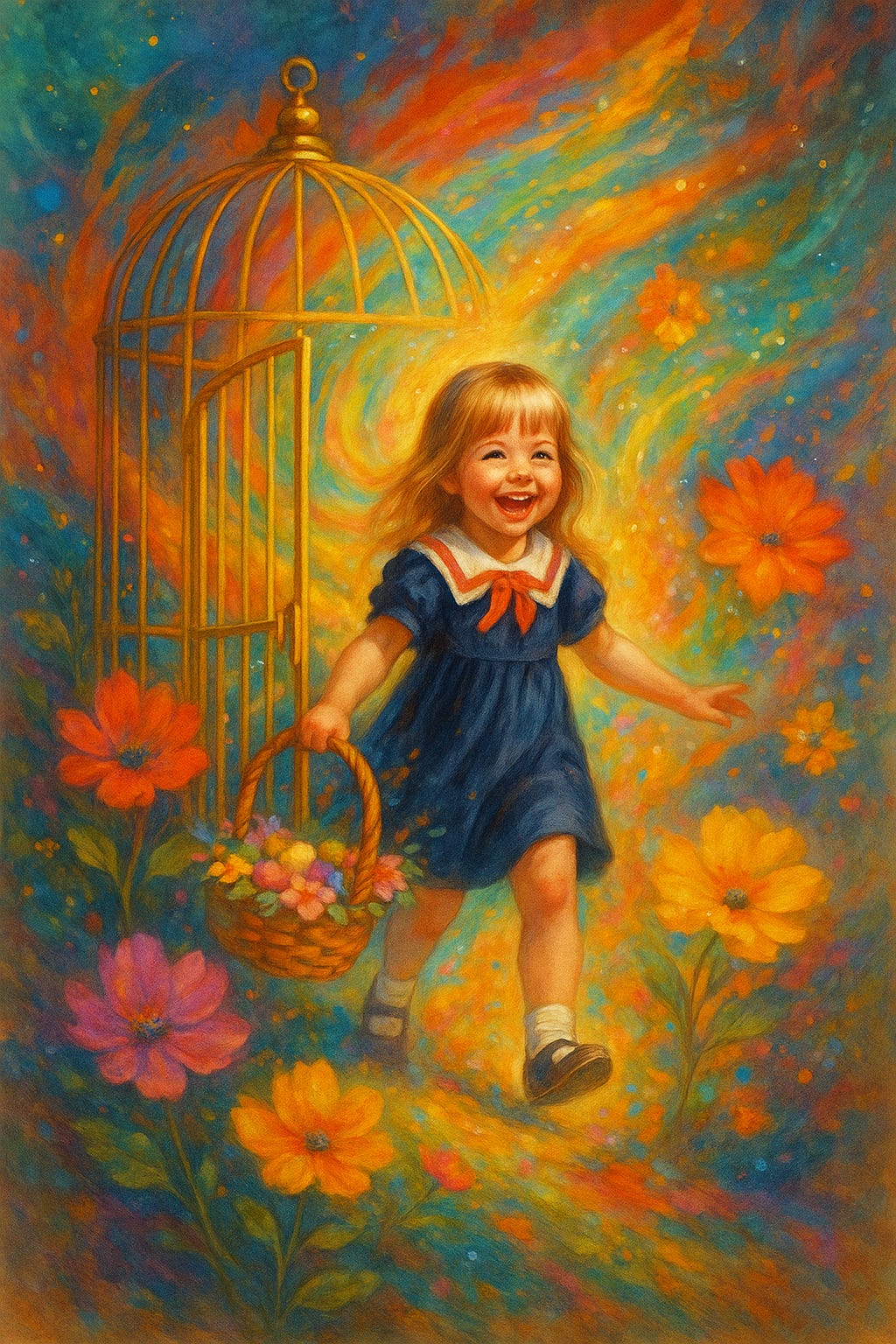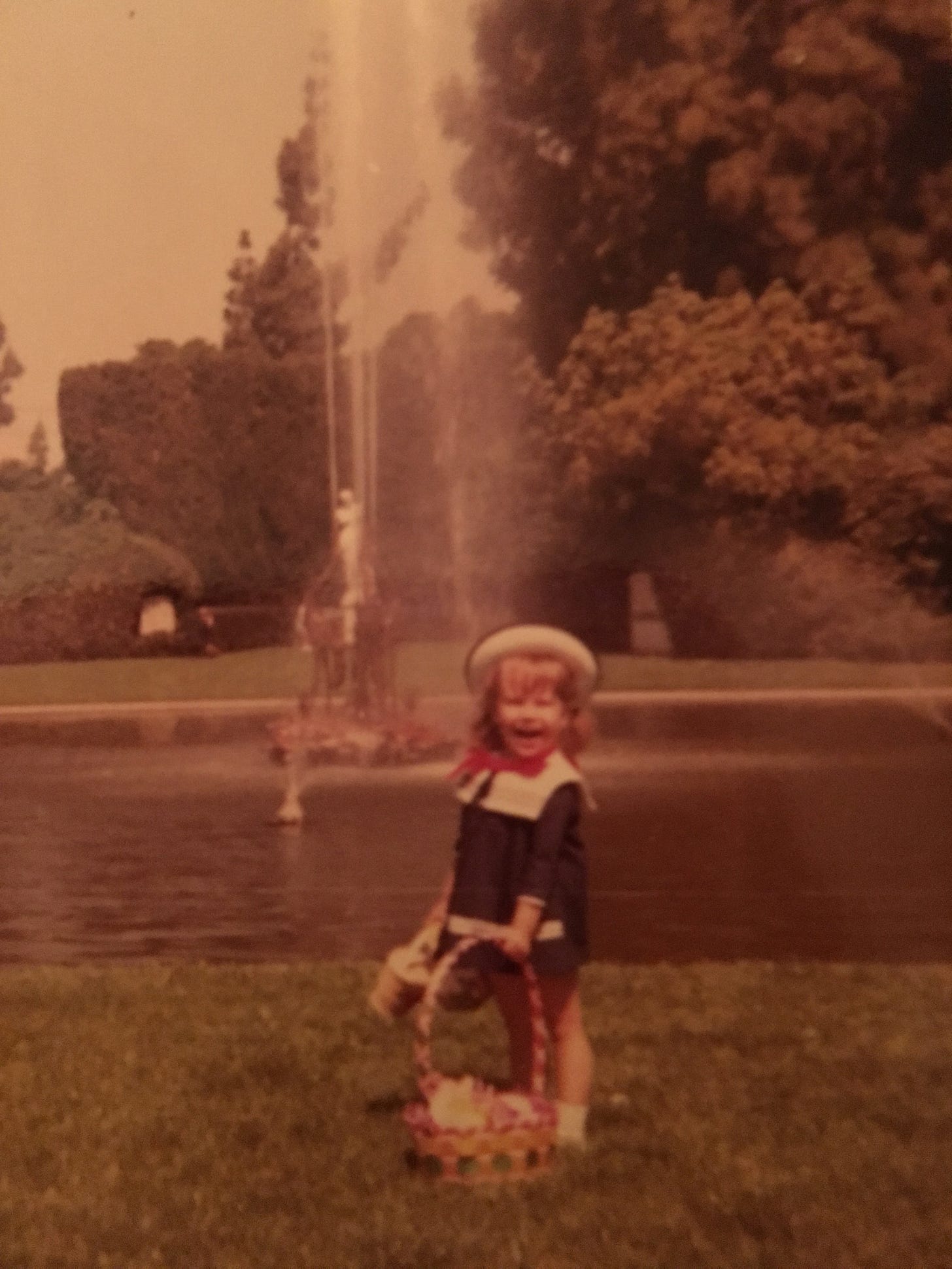The Day I Went Silent:
ADHD, Trauma & Finding My Voice
A personal story about ADHD, trauma, and rediscovering my voice.
I’ve been thinking about a photo I posted recently—me at Forest Lawn in Glendale, holding an Easter basket, face lit up with joy. You can see it in my whole being: I was bright, excited, expressive. That kind of joy that just radiates from a kid who hasn’t yet been dimmed.
But I remember when the shift happened.
Around 5 or 6, in kindergarten. I loved show-and-tell. I brought a beautiful hand-stitched doll from my aunt and uncle in England, and I was so proud to share it with the class. I loved to share—until one day, I didn’t.
It’s hard to pinpoint the exact moment, but something in me began to go quiet. I became painfully shy. I started choosing failure over standing in front of the class. I began hiding.
I’ve wondered for years—what changed?
I won’t go into everything here, but let’s just say there were things happening that made my home feel unsafe. There was emotional chaos, manipulation, control. A therapist once asked me if my mother had ever been diagnosed with narcissistic personality disorder. She hadn’t. But that question alone was clarifying.
The environment I grew up in didn’t leave space for sensitivity. Or wildness. Or mistakes. Or authentic expression. So, I got quiet.
I see now how much that early emotional world shaped my experience of ADHD as a woman. How being “too much” in an unsafe place doesn’t feel like a superpower—it feels like a threat. Like danger. Like shame.
ADHD and trauma are deeply intertwined. If you're a neurodivergent child raised in a home where emotional needs were unmet or invalidated, your sense of safety around self-expression can erode. And so many of us learn to mask, to shrink, to perform instead of be.
Sometimes I wonder what might’ve been different if my bigness had been nurtured instead of shut down. If someone had sat with me during a nightmare instead of getting angry.
I acted out—until I learned to act in.
I think a lot of us are still working our way back to that version of ourselves. The one who loved the spotlight. The one who lit up with joy. The one who didn’t apologize for taking up space.
I see her in that photo—and I think she’s still in here, waiting.
If you grew up with ADHD and trauma, or you were an expressive child who went quiet—please know you're not alone. The path to healing may begin with remembering who you were before you were silenced.
Still me. Still you. Always becoming.



